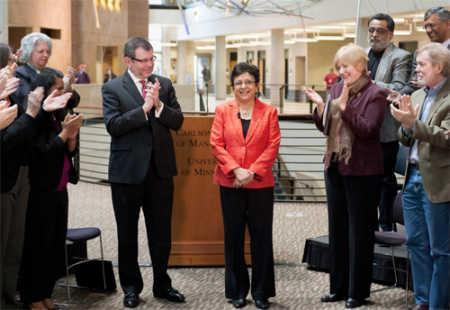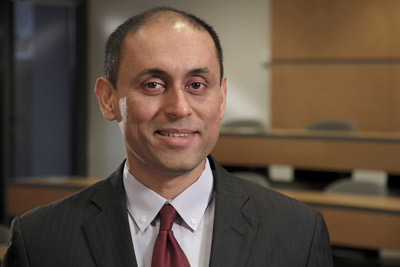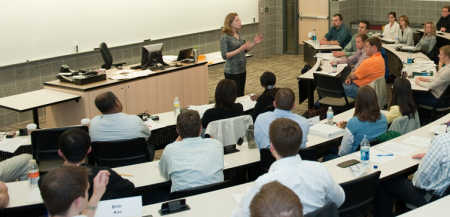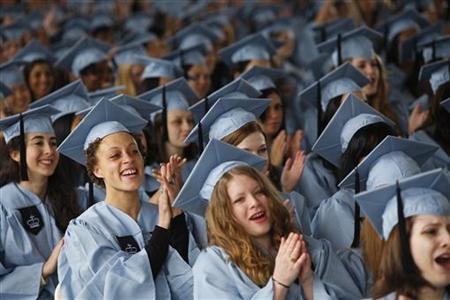 | « Back to article | Print this article |
Are Indian students shunning US business schools?
Less than two months after India's Soumitra Dutta took over as the dean at US's Cornell University's Johnson Business School, Srilata A Zaheer became the first Indian woman to head the Carlson School of Management at the University of Minnesota.
In an emailed interview to M Saraswathy, she shares her goals and India plans.
Click NEXT to read more...
Are Indian students shunning US business schools?
Edited excerpts:
How does it feel to be the first Indian woman dean of a US school?
Our school has no gender issue. We had a woman dean just before me. In fact, the US' higher education is at the forefront, with many women deans and presidents at top universities.
It will hopefully act as a beacon to help shatter the glass ceiling in other sectors. Also, while I may be the first Indian woman dean of a top-tier US business school, I know several Indian women who are deans, provosts and chaired professors at several respectable universities here.
Click NEXT to read more...
Are Indian students shunning US business schools?
What are your plans upon becoming the dean?
Reaching out in person and through extensive crowdsourcing to listen to all of our stakeholders - students, faculty, staff, the business community and the alumni - and articulating a pathway to our future.
Click NEXT to read more...
Are Indian students shunning US business schools?
How would you deal with financial resources-related issues, given a gradual decrease in state funding for the school?
In the last five-plus years, state funding has been reduced from approximately 20 per cent of our budget to less than five per cent. As a result, we have found ways to grow revenue from other sources. We will continue to look at all possible sources.
Click NEXT to read more...
Are Indian students shunning US business schools?
Does your school have India on its mind?
We have a strong relationship with the ISB (Indian School of Business) at Hyderabad. My husband, Aks, and I were both on its founding international academic council; Aks has taught there every year since its inception.
We negotiated an agreement with ISB, where one of our professors, Ravi Bapna, chairs ISB's SRITNE information technology centre, and several other of our faculty teach at ISB.
Additionally, our executive MBA students from our Vienna programme (one of the three international executive MBA programmes we have), others are in Warsaw and in Guangzhou, visit ISB every year.
Our students have done live cases and field trips in India. The India seminar you mention was one of those cases. We are in talks with a major Indian business schools about starting an international executive MBA in India.
Click NEXT to read more...
Are Indian students shunning US business schools?
Indians are increasingly holding top positions at international institutes. Would it be right to say that the US has now started to realise the potential of Indians as future leaders?
The US system is deeply meritocratic, so national origin is usually neither an asset nor a liability. A lot of students from the very best Indian schools came to the US to do their PhDs in the 1970s and the '80s.
What you are seeing now is their coming-of-age. In the past 15 years, however, we have seen a decline in the numbers of high-quality applicants from India into US business PhD programmes.
This does not bode well either for more Indian-origin deans in the future or, of greater concern, to meet a growing need for research-trained faculty both in India and worldwide.






